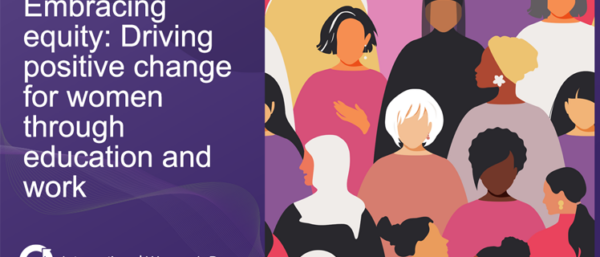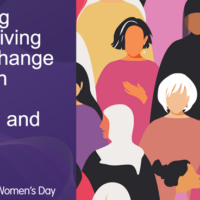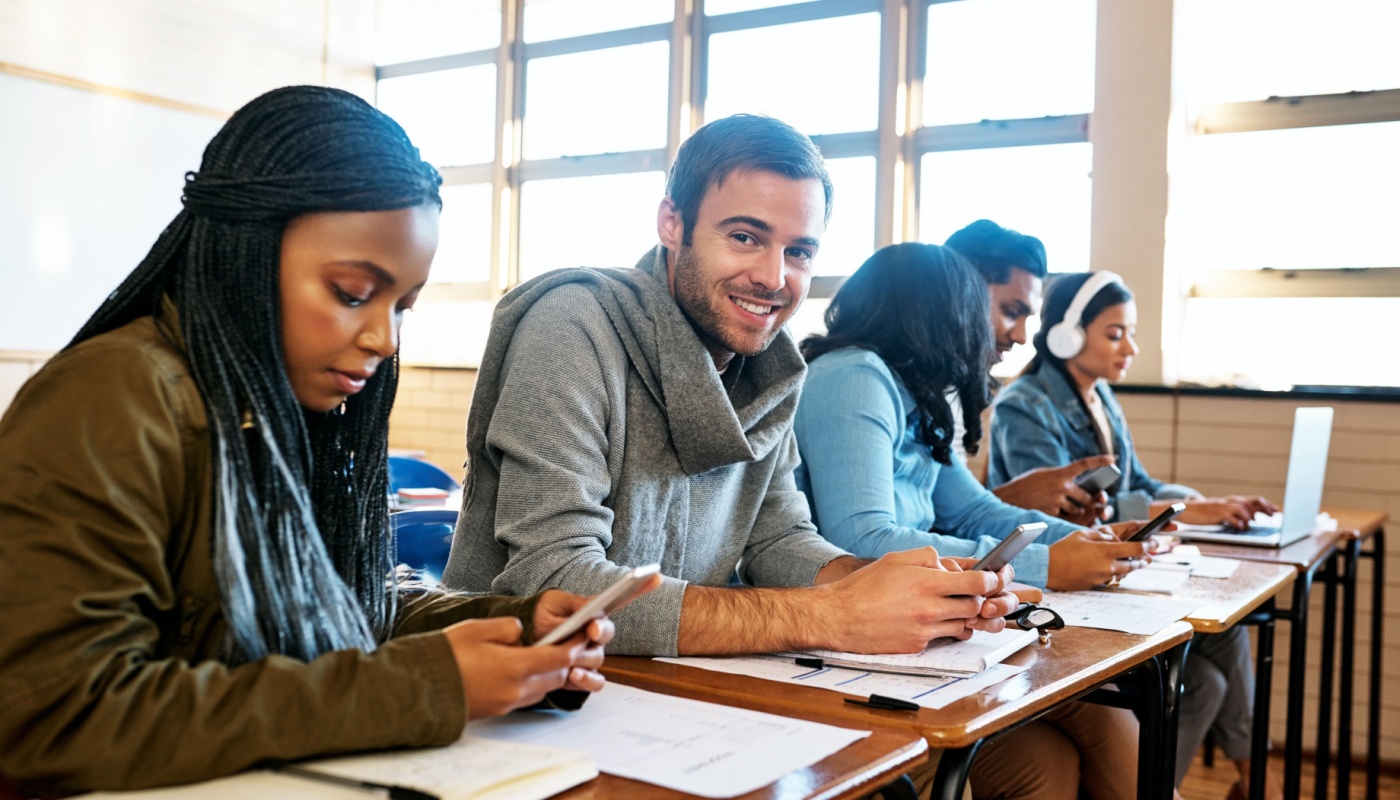
Embracing equity: Driving positive change for women through education and work
 People 1st International
People 1st International
Over the past six years, the share of women hired into leadership roles has seen a steady increase, from 33.3% in 2016 to 36.9% in 2022 according to the World Economic Forum’s Global Gender Gap Report 2022. Whilst the numbers are improving however, the report also demonstrates that gender parity may not be achieved for a further 132 years[1].
As the consequences of the pandemic and global conflict have disproportionately impacted progress in women’s education and employment opportunities, gender-responsive policies continue to be imperative to address widening gender gaps. [2]
Making participation in technical, vocational education and training (TVET) and skills development inclusive for all is a critical and effective strategy for empowering marginalised groups, especially women, and addressing youth unemployment and underemployment.
“Equity-based solutions take into account the diverse lived experiences of individuals and communities, adapting services and policies according to these differences.” -internationalwomensday.com
Reflections for International Women’s Day 2023
International Women’s Day is a global day celebrating the social, economic, cultural and political achievements of women. The day also marks a call to action for accelerating gender parity.
Many of the projects we engage with at People 1st International have a clear objective to address imbalanced social systems and challenge barriers that prevent people’s ability to thrive.
Our passion to directly impact positive change and provide all genders with equal opportunities to skills development and lifelong learning has seen us work across some rewarding initiatives.
A pilot project in Valle del Cauca to promote employment opportunities for women and young people in the construction sector
After the Covid-19 crisis deepened inequalities and disproportionally affected young people and women in Colombia, a national strategy for economic recovery was implemented by the Colombian government, which prioritised the infrastructure and construction sectors.
We worked with partners including the FCDO and the Colombian Construction Chamber (Camacol), with the support of the National Training Service (SENA) and the Office of the Presidential Adviser on Equality for Women to design a training and labour inclusion model for women and young people in the construction sector to promote a more inclusive organisational culture.
After identifying the barriers and opportunities to access and permanence of women and young people in the construction sector, as well as good practices, we developed a gender equality and social inclusion toolkit which was approved and adopted by Camacol.
The workshops we delivered provided 28 construction companies with approaches to building job opportunities for women and youth, strategies for social and gender inclusion, promotion of violence‐free environments and inclusive recruitment processes.
Retail and hospitality training for Syrian refugees
The integration of over 1.3 million Syrian refugees living in Jordan presented a significant social, economic and political challenge. The long-term vision required improvements in access to formal jobs and skills provision. The partnership between People 1st International, EBRD, and local partners, Education for Employment – Jordan and Abdali Mall Company, offered a unique arrangement to support the integration of refugees into the local economy in Jordan.
Through a project focused on economic social inclusion, with important consideration given to gender equality, we trained over 120 Syrian refugees in a work readiness programme, including customer service and soft skills training, following which 75% gained employment. The programme included options such as a manicure and pedicure training programme to provide women with opportunities to train in a field that would suit their family commitments and cultural sensitivities.
Transmedia strategy to train the women of Putumayo in post-conflict Colombia
Ongoing conflict resolution in Colombia created an opportunity for economic development of impoverished communities, alongside a conservation threat in newly accessible rural areas.
As ecotourism is often proposed as a win–win solution for developing countries to meet both economic and conservation needs, we worked with the British Council, Universidad del Cauca, Instituto Tecnológico del Putumayo, and Asociación Mujeres Tejedoras de Vida to implement blended face-to-face and radio-based training to upskill women across post-conflict municipalities of Putumayo. The project trained 157 women in its initial phase and aimed to indirectly benefit 19,250 people through the radio capsules by 2020.
High-quality training enhancement and inclusion in Egypt
More recently we’ve started a project in Egypt to on a high-quality training enhancement and inclusion programme with Hyatt Regency Cairo West. The project includes a special focus on diversity to encourage and support young women’s inclusion in the labour market. We’re conducting an equal opportunities and diversity assessment with recommendations to further strengthen HYATT’s HR policies and practices concerning recruitment, pay, progression and training as well designing and delivering training and initiatives to promote women’s participation in the sector and gender-sensitive practices.
As we continue to support mobility and progression for all throughout our interventions, we’re proud to celebrate success, raise awareness and #EmbraceEquity in celebration of International Women’s Day 2023.
“Equality is giving everyone a shoe. Equity is giving everyone a shoe that fits.”
– Dr. Naheed Dosani
[1] https://www.weforum.org/reports/global-gender-gap-report-2022/
[2] https://www.imf.org/-/media/Files/Publications/covid19-special-notes/en-special-series-on-covid-19-gender-equality-and-covid-19.ashx



